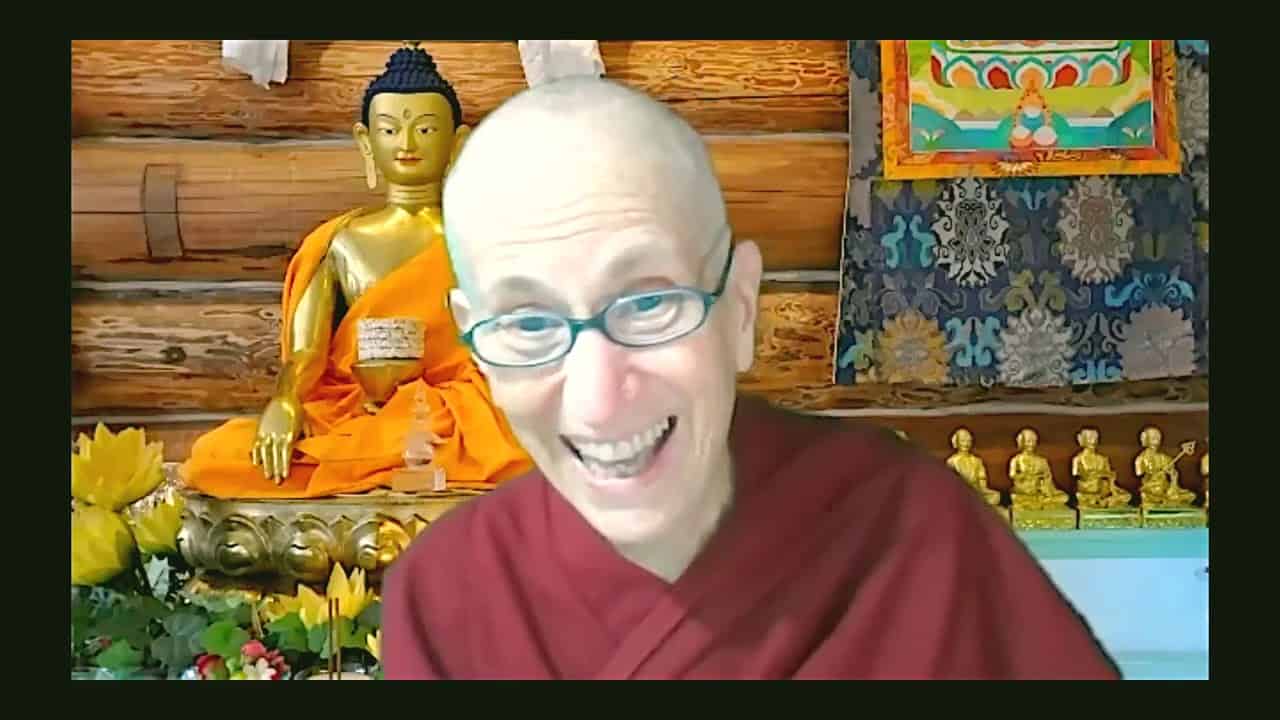Purifying destructive karma
80 The Foundation of Buddhist Practice
Part of an ongoing series of teachings (retreat and Friday) based on the book The Foundation of Buddhist Practice, second volume in “The Library of Wisdom and Compassion” series by His Holiness the Dalai Lama and Venerable Thubten Chodron.
- Recognizing our afflictions and specific antidotes to them
- Four opponent powers: regret, antidote, resolve, reliance
- Questions to ask while examining past negative actions
- Recognizing mental, verbal and physical behavior patterns
- Six virtuous action as antidote
- Reestablishing relationship with holy objects and sentient beings
- Importance of strong determination not to do the action again
- Factors influencing the purification process
The Foundation of Buddhist Practice 80: Purifying Destructive Karma (download)
Contemplation points
- What are some ways that purification can be both spiritually and psychologically beneficial for us? If you have practiced purification, what has been your personal experience of this?
- What are the four opponent powers?
- Identify negative habitual behaviors of yours and ask yourself: “Was my interpretation of the situation accurate or was it skewed by my self-centeredness? What was my motivation? How were my body, speech, and mind involved in this action? Do I engage in this action often? Did I rejoice afterward?” Then contemplate, using your Dharma knowledge, how you could think about and deal with a similar situation should it happen in the future.”
- What is the difference between guilt and regret? Give personal examples.
- What are some different remedial actions we can perform to counter the negative action? Why is making a resolution to refrain from certain actions an act of powerful purification?
- What are the two types of objects towards whom we create negativity? How do we go about reestablishing the relationship for each of those?
- What are ways we can direct our mind to lessen any immediate suffering we are experiencing?
Venerable Thubten Chodron
Venerable Chodron emphasizes the practical application of Buddha’s teachings in our daily lives and is especially skilled at explaining them in ways easily understood and practiced by Westerners. She is well known for her warm, humorous, and lucid teachings. She was ordained as a Buddhist nun in 1977 by Kyabje Ling Rinpoche in Dharamsala, India, and in 1986 she received bhikshuni (full) ordination in Taiwan. Read her full bio.


